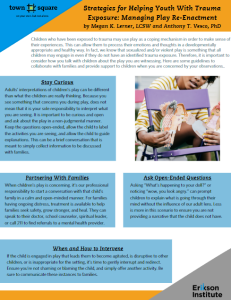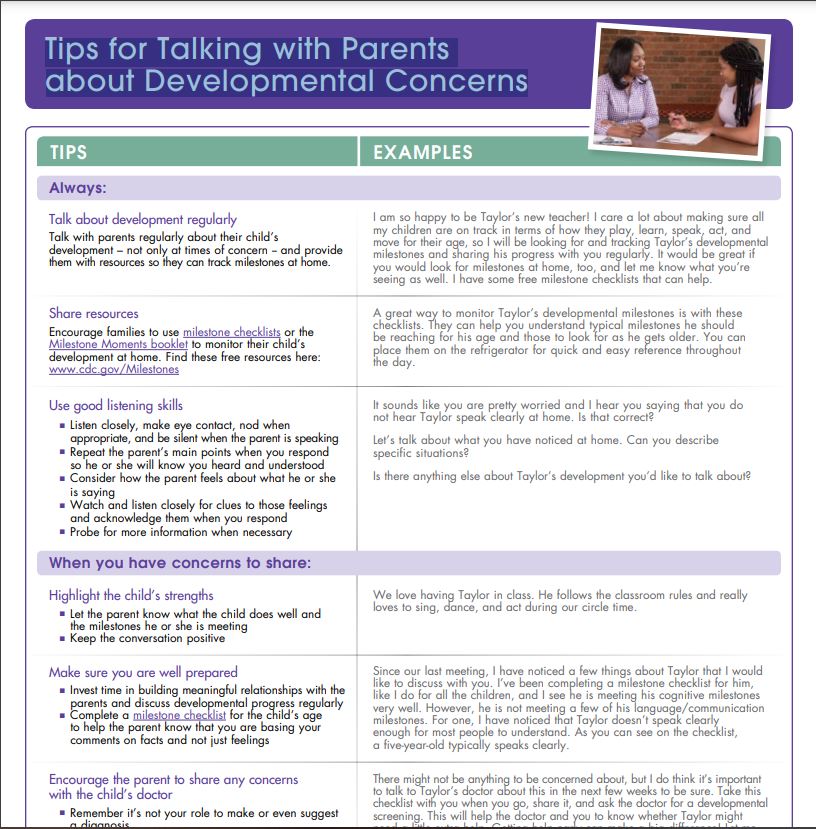When providers encounter children engaging in play with troubling themes, it’s important to understand how to interact with the children in their play, when and how to interrupt, and how to talk to families about our observations. This one-page downloadable/printable document from mental health professionals Megan Lerner, LCSW and Anthony T. Vesco, PhD, can help prepare you for these difficult situations.
Talking to families about your concerns can be difficult. However, open communication is always best. You may suspect a delay, but after talking to parents you might find there are other underlying reason for what you have observed or you might find parents have the same concerns. This handout from the CDC can be a helpful starting point for a conversation to determine if there is a need for further assessment.
Tips for Talking with Parents about Developmental Concerns
Children grow and develop at different rates and there are many factors that can influence the rate at which developmental milestones are met by each child. A child who has not yet mastered a skill or task that other children of the same age have mastered might be in the process of developing or might be experiencing a delay. If a delay is suspected, working with a pediatrician or specialist may be important in determining if intervention is necessary to support the development of the child. Family childcare providers should consider writing down their observations of each child’s development or using a screening or assessment tool to track development. Observations and assessments can be useful to professionals who determine a delay and plan a course of action.



